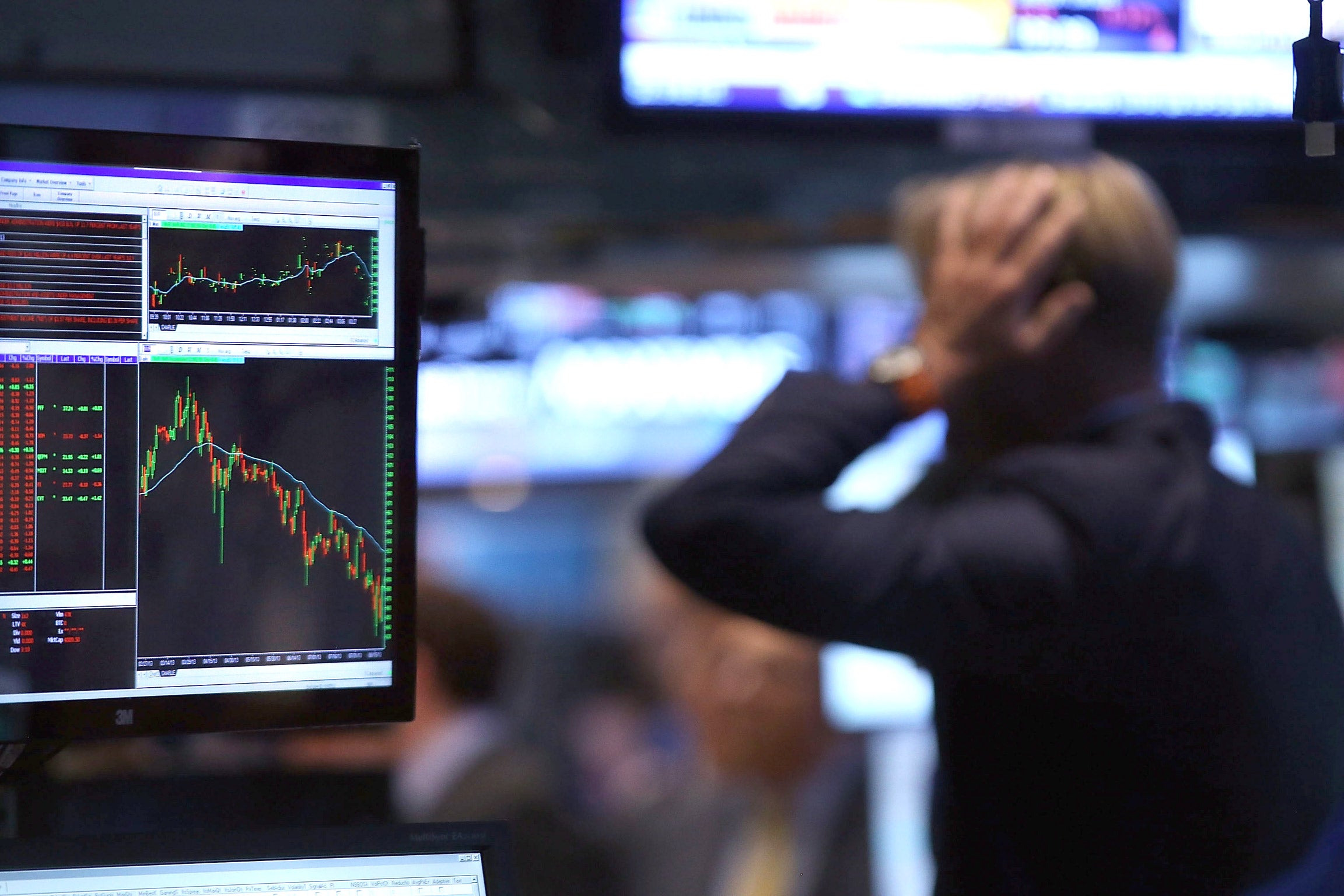Satyajit Das: Our need for information only fuels illusions over the state of the markets

In 2013, an asset management consultancy identified alien invasion as a risk for the global economy, albeit an unlikely one. A reader wryly observed that this would be an excuse for markets to rally further, as businesses could look forward to the prospect of demand from new, non-human customers. Since 2009, financial markets have largely ignored risk, constructing a favourable narrative around events and rallying on any information.
In 2014, growth in advanced economies was disappointing. Europe flirted with recession. Abenomics could not prevent Japan sliding into its fourth technical recession in six years since 2008. The US and UK were the cleanest of the dirty shirts, but even they grew below trend.
Recovery in employment and income levels is lacklustre. Investment remains weak. Growth in global trade has slowed. Low interest rates are driving speculative housing booms and investment in bio-tech and technology, and compounding the problem is low inflation. In Japan and Europe, there is concern about deflation.
The combination of modest economic growth, low inflation or deflation and high debt levels is toxic. As income levels fall, the ability to service debt declines. A shrinking economy increases debt-to-GDP levels.
Emerging markets have lost momentum. China and India's economic momentum has slowed. While still stronger than that in advanced economies, growth is below peak levels and those needed to absorb new entrants into the workforce and maintain social and economic equilibrium. The slowdown in emerging markets has exposed weaknesses in infrastructure, labour markets, skills, the financial sector and governance.
Public-sector debt continues to increase, despite efforts to bring public finances under control. The rising debt burdens in Japan, Italy and France are now reaching tipping points, especially given the lack of credible policies to stabilise or correct them.
Household debt is again starting to grow, reflecting higher house prices which require higher levels of borrowing. Corporations have increased borrowing to fund share buybacks as well as corporate restructuring, mergers and acquisitions. Emerging market debt has also risen to finance consumption or investment, to maintain growth after 2008.
High debt levels increase vulnerability to economic weakness; a normalisation of interest rates would increase debt servicing costs.
The weakness of the global economy is despite the extraordinary levels of stimulus to restore activity levels. But there is now increasing concern that these policies have reached the limits of effectiveness. Central bankers are worried that policy options are now limited. Japan's 25-year experience highlights the limits of massive government fiscal and monetary stimulus to use growth and inflation to solve problems.
A new round of currency wars is under way. Japan, Europe and China are attempting to engineer devaluations. But one nation's weak currency equates to someone else's stronger currency. A stronger dollar affects US exporters and foreign earnings. With 40 per cent of S&P 500 sales being foreign, the effect is significant: in the third quarter of 2014, the stronger dollar reduced sales by around 8 per cent.
Currency devaluations combined with excess capacity, driven by debt-fuelled over-investment in China, is also helping maintain strong deflationary pressures. Commodity prices, especially oil, have fallen sharply. This reflects weak demand and increasing supply as well as strategic manoeuvring, especially in the energy markets. It also reflects a stronger dollar and expectations of rising real interest rates. Weak commodity prices compound the problems of emerging markets such as Brazil, Russia and South Africa. It also affects Australia, New Zealand and Canada, hitherto insulated from the worst of the recession by high prices and rising volumes of commodity exports. Weak commodity prices may not provide the expected fill-up to economic activity.
Weaker revenues will affect the ability of highly leveraged commodity producers to continue to service debt. Rising losses on commodity-dependent lending may affect the global banking system as well as investors. Lower prices have already resulted in reduced investment in projects which are uneconomic under current conditions, leading to further weakness in activity.
Investors have chosen to ignore the sum of all these fears. Instead, they have invested enormous intelligence and analysis to fulfil their need for illusion.
Satyajit Das is a former banker and author of 'Extreme Money' and 'Traders, Guns & Money'
Subscribe to Independent Premium to bookmark this article
Want to bookmark your favourite articles and stories to read or reference later? Start your Independent Premium subscription today.

Join our commenting forum
Join thought-provoking conversations, follow other Independent readers and see their replies